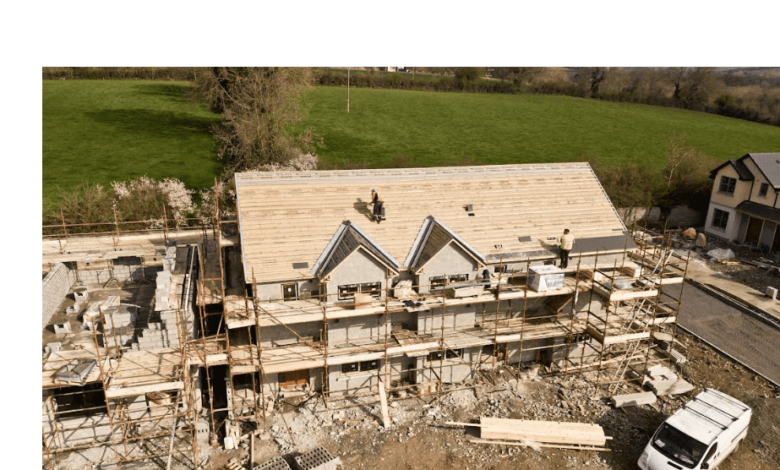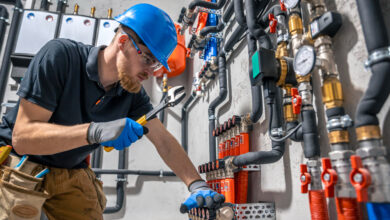Efficient Renovation Tips for Every Season

Renovating for efficiency might feel overwhelming, but it’s totally doable with the right mindset. This guide offers renovation tips for every season, helping you keep your home energy-efficient and cozy, no matter the weather. From winterizing your windows to optimizing your cooling systems in the summer, we’ll share simple strategies to enhance your home’s performance. Let’s dive into this journey to create a more sustainable and enjoyable living space!
Residential Roof Tear Offs
It all starts with a good roof, which is essential for keeping your indoor climate stable. A residential roof tear off means stripping away old roofing materials to expose the underlying structure. This step lets you check for any damage and make necessary repairs, ensuring that the new roof offers the best insulation and protection from the elements.
Benefits?
A new roof can greatly enhance energy efficiency by limiting heat loss during winter and reducing heat gain in summer. Furthermore, it offers protection against water damage, helping to extend the lifespan of your home.
Practical Tips?
Opt for high-quality, energy-efficient materials like cool roofing that reflect more sunlight and absorb less heat. Also, think about adding a radiant barrier in the attic to boost energy efficiency even more.
Upgrading Your HVAC System
A good HVAC system is key to a comfy home. Upgrading an old system can save you a lot on energy bills and improve the air quality too.
Benefits?
Modern HVAC systems are built to be more energy-efficient, cutting down on energy use while keeping your home at a comfortable temperature. Plus, better filtration systems help improve indoor air quality, which is great for your overall health.
Practical Tips?
Choose a system with a high SEER (Seasonal Energy Efficiency Ratio) rating. Don’t forget that regular maintenance, like changing filters and cleaning ducts, is key to keeping it running smoothly all year long—trustworthy services like First Choice Heating & Air can help with that!
Insulation Upgrades
Good insulation is key to making your home energy efficient. When you upgrade your insulation, you help keep your space warm in the winter and cool in the summer, which means you won’t have to rely as much on heating and cooling systems.
Benefits?
Better insulation really cuts down on energy loss, which means lower heating and cooling bills. Furthermore, it helps soundproof your space, making for a more peaceful indoor environment.
Practical Tips?
Concentrate on insulating spaces that are vulnerable to energy loss, including attics, walls, and basements. Explore eco-friendly insulation materials to promote a sustainable approach.
Window Replacements
Windows are frequently responsible for energy inefficiency in homes. Upgrading to energy-efficient models can greatly enhance your home’s thermal performance.
Benefits?
Energy-efficient windows reduce drafts, keep your home more comfortable, and help cut energy costs. They also offer better UV protection, preserving interior furnishings from sun damage.
Practical Tips?
Choose windows with double or triple glazing and low-E coatings. Make sure they’re installed properly to avoid air leaks and boost energy efficiency.
Incorporating Smart Home Technology
Smart home technology, like smart thermostats, energy-efficient lighting, and automated appliances, provides great ways to manage energy use. By integrating these solutions, you can significantly reduce utility bills while enjoying the convenience of remote control and scheduling.
Benefits?
Smart thermostats, lighting, and appliances let you take control of your energy use, adjusting to your lifestyle and cutting down on unnecessary consumption.
Practical Tips?
Start by getting a smart thermostat to efficiently manage your heating and cooling. Then, consider adding smart lighting and appliances for a complete energy management system.
Planning Renovations According to Seasonal Needs
Timing renovations strategically can significantly enhance their impact. By aligning projects with seasonal shifts, you ensure that improvements are implemented just when they are needed the most.
- Winter: Focus on insulation and HVAC upgrades to keep your home warm and energy-efficient.
- Spring: Ideal for roof repairs and replacements, preparing for summer heat.
- Summer: Upgrade windows and incorporate smart technology for optimal climate control.
- Fall: Conduct maintenance checks on HVAC and seal any drafts before winter arrives.
By making these smart renovations, you can keep your home comfortable and efficient all year round. Embrace these upgrades to save on energy costs and enhance the overall quality of your living space.




